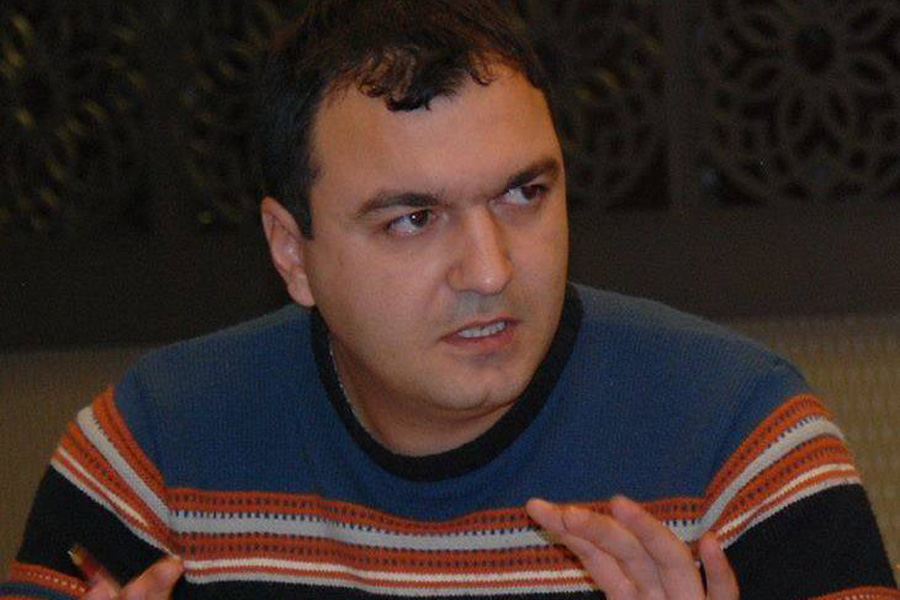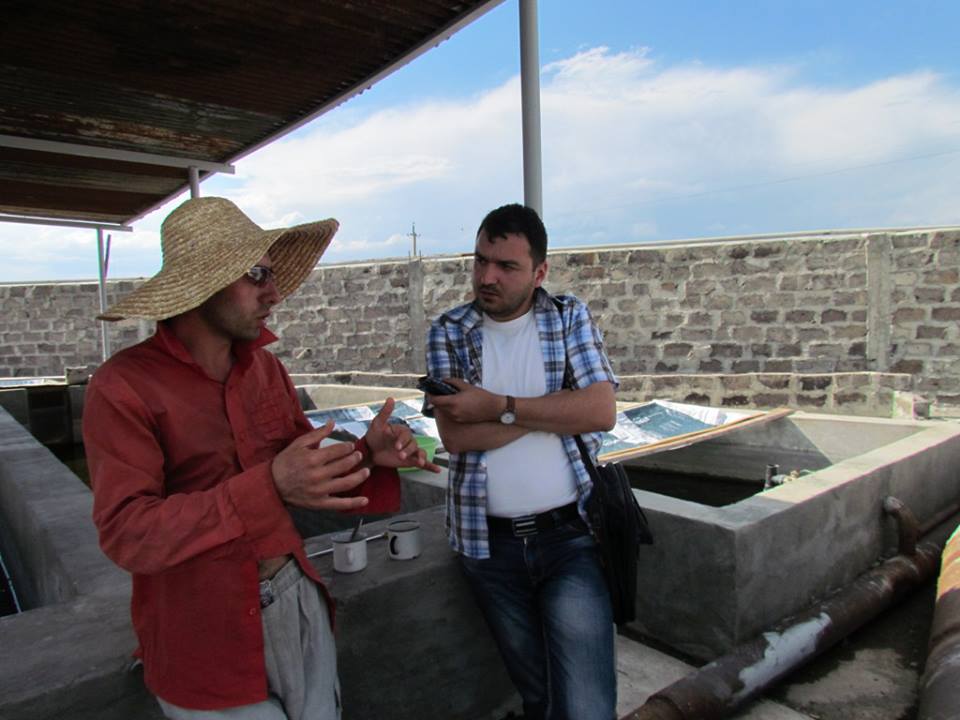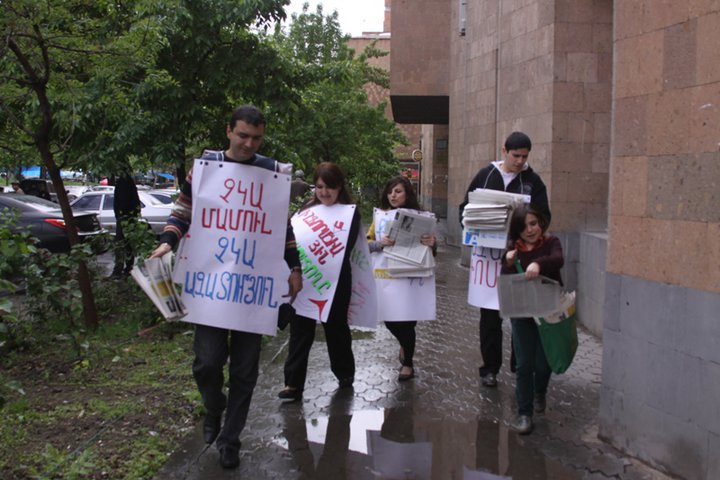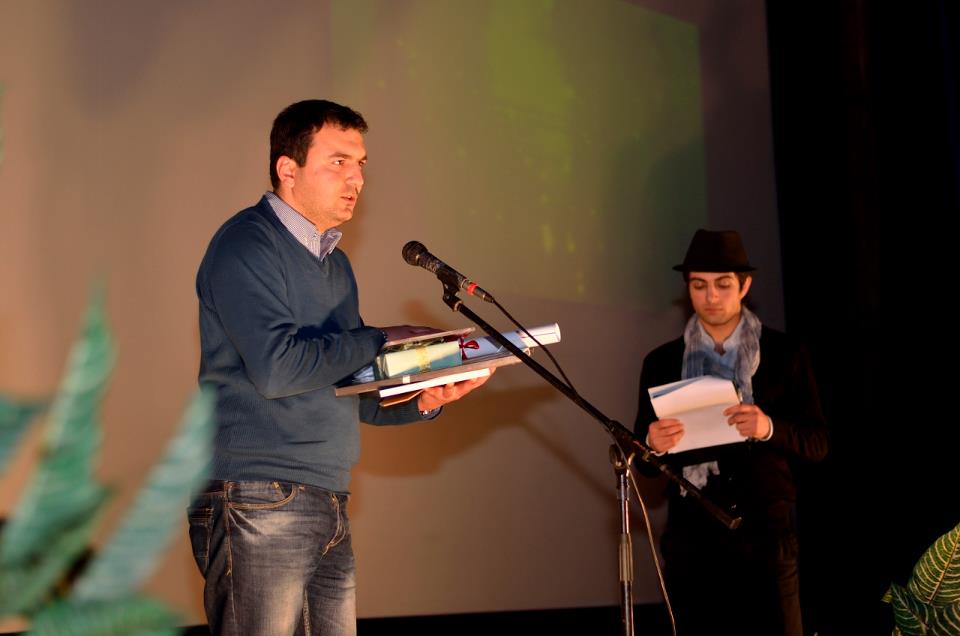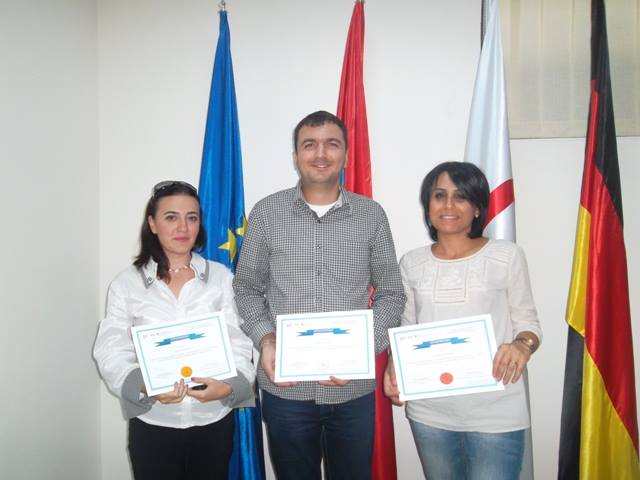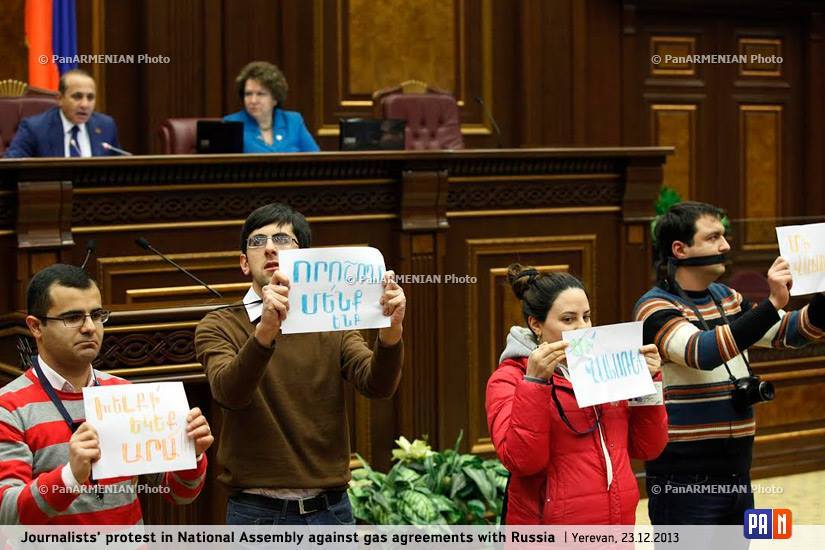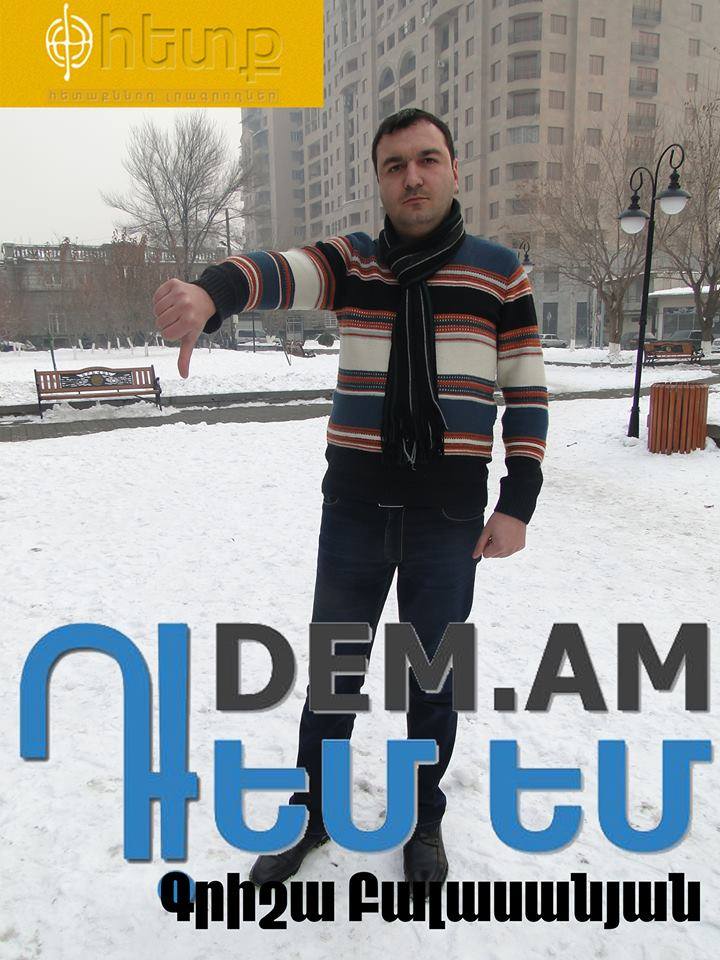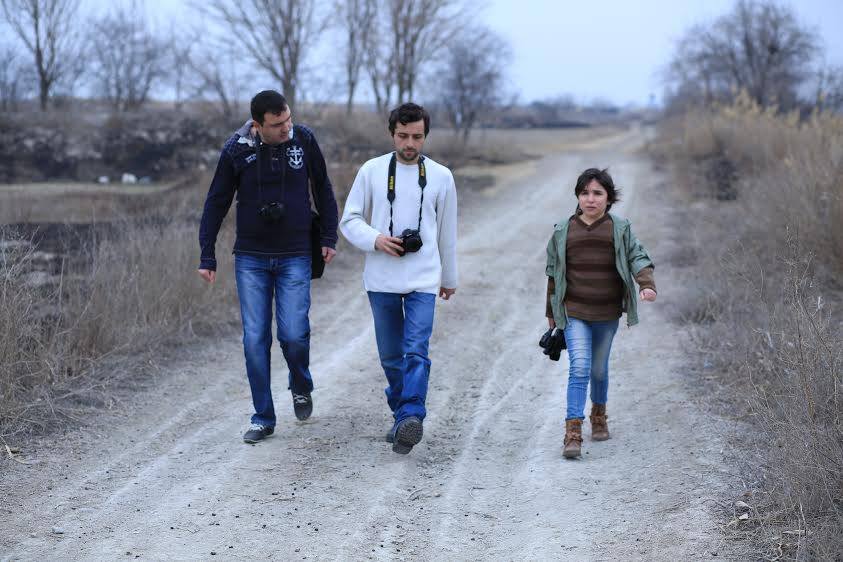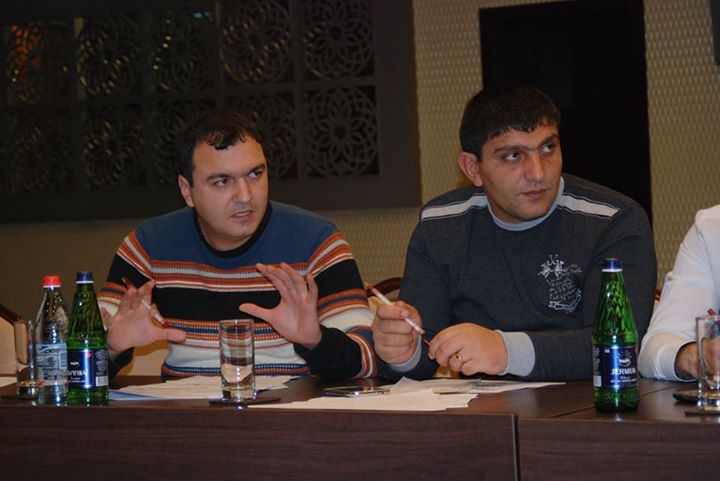Investigative journalist Grisha Balasanyan has heard many threats mainly from car-lovers. “They also ask whether I am not afraid of car crashes. I do certainly understand the meaning behind, but I always say – no, I`m not afraid of car accidents”, remembers the journalist. He felt a real threat when one day in the morning one of the village heads about whom Grisha had prepared an investigation, entered the editorial office of “Hetq”: “I want to see Grisha Balasanyan” he said and shouted angrily: “When I see him, I`ll throw him out of this window”. Grisha at that time was standing in front of the village head, what was his reaction, what problems did he have during his activity and what are his plans for the future? Details in the regular interview of the series “Journalists covering the legal sphere” by Iravaban.net.
Grisha, first of all briefly introduce Yourself.
I am a lawyer by profession, I have been involved in journalism for 9 years. As a journalist working in the legal and legislative body I have been involved for 3 years. I am accredited at the National Assembly and I often go to courts as well.
How did You chose this specialization? I mean journalism.
I have chosen the profession of a journalist quite accidentally, I was going to my grandmother`s, she lives in Vardenis, and on the way I decided to buy a newspaper and read, I bought “Aravot” just randomly. I looked through the articles, I liked them and decided to refer to a problem. I prepared an article and took it to the editorial office of “Aravot”, they liked it and published, and they offered me to cover issues of the regions, and I agreed, I prepared a couple of articles and thus I entered the field of journalism. I never thought I`d chose this profession. I am a lawyer by education, I studied at the Northern University in Yerevan, and later in 2012 I was accepted to the School of Advocates which I finished in 2013 and currently I am also an advocate.
Are You currently actively involved in advocacy?
Yes, I have a couple of cases, usually I run the cases of “Hetq”.
When did You join “Hetq”?
Since 2009 I have been working at “Hetq”.
You have been working in the investigative field for a couple of years. Do You remember a scandalous case?
There is the National Center for Technical Security SNCO adjunct to the RA Ministry of Emergency Situations, and I was having investigations in dangerous places – in elevators, etc. I remember, that was one of the first cases I revealed. The director of SNCO was receiving 1 mln 250 thousand AMD salary. He was signing in front of another salary in the list, and was getting a different one, as well as he hired his friends with high salaries. I prepared an article on that, and less than a month passed that the official`s salary was reduced to 250 thousand AMD. After that his relatives and close friends started to threaten me, but I never took those threats seriously, neither today. Currently I am preparing an investigation on PM Hovik Abrahamyan`s property, I got some “Keep calm, don`t go deep”. They also ask whether I am not afraid of car accidents, I do certainly understand the meaning behind, but I always say I am not afraid. I am a journalist and deeply involved in this. It`s a crime to get back from something if you see there`s a problem there. Writing an article on Hovik Abrahamyan`s wealth, I found out that he and his relatives have more than 50 companies in Armenia, and only 3 of those are involved in the list of 1000 tax-payers. I suppose the others function in the shadow.
As far as I understand the first principle for an investigative journalist is not to be afraid?
Sure, a journalist in general should not be afraid, otherwise he can`t be called a journalist.
Have there been any serious conflicts, so that You are attacked and hit?
Not beating, but I had a serious conflict with MP Ruben Hayrapetyan who insulted me, and I filed a lawsuit against him. You don`t need to get into personal or other “boy” kind of issue-solving, those problems should be solved on a legal platform. If you are insulted, sue that person or apply to the law-enforcement bodies. There`s another problem here – whether the law-enforcement officers or judges will give an equivalent answer, nevertheless, you can`t answer them in the same manner, as they always have advantages, they are in the authorities.
Legislative body and judicial system: what kind of issues arise between journalists and representatives of those institutions?
In general we have problems at the National Assembly. Contacts with Parlamentarians do not work out. Representatives of our legislative body perceive the journalists as their adversary. They have prepared a barricade and put the journalists on the other side of it. In fact the journalist is not their adversary, it`s another issue whether they don`t like their activity. But if they chose to be a Member of Parliament, they should adapt to the fact that journalists can “persecute” them, ask provocative questions.
What is the main problem of our legislative field?
We have laws, very nice ones, which can even compete with European ones and pass them, but it`s a different question whether these laws are practically applied. Certainly not. Human rights are supreme values and should not be subordinated. I don`t want to blame the society, but it has a major role in this situation, that judges and other officials do not act by law. Often society members say – let us give some additional money for this case be investigated sooner. They do make the officials used to this. There is also the question of national security, and the person feeling oppressed in his country, won`t be willing to stay there.
What are Your plans for the future?
I want to devote myself to the advocacy. Especially in the regions, communicating with people, I understand that the residents of the regions are quite vulnerable with the law level of their legal consciousness. I have to be actively engaged in this.
We have spoken about the black pages of Your activity – threats, etc. Have there been any funny incidents?
Yes. I remembered a case connected with a village head, I have written an article on him, and he came to the editorial office early in the morning. There`s me and my colleague. The village Head entered in and said angrily: “I want Grisha Balasanyan”, I feel that he is angry. “When I see him, I`ll throw him out of this window”, he announced. I was standing in front of him and I said smiling: “Sorry, he is on a business trip”, I have been communicating with him on phone before that. I didn`t find anything else to say at that moment, if I said I was Grisha Balasanyan, that might turn into grave consequences. He left and then came back in a more relaxed condition, and we discussed the issue and solved it.
You can also read other interviews in this series:
“Why does the legal journalist “fiercely hate” the National Assembly?
Interview by Gevorg Tosunyan
Photos from Grisha Balasanyan`s personal archive
Author of the idea Karen Zadoyan

